Energy&Economy
Central Asia, The Chinese Silk Road.
7 Oct 2013 China has spent more than $50bn in the past three months on energy and infrastructure deals in central Asia as Beijing seeks to establish a “new Silk Road” through the region. 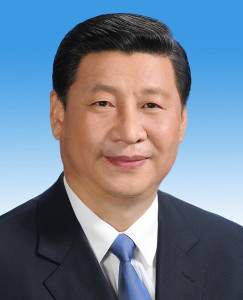
Chinese outbound investment totalled just over $100bn in the third quarter of 2013 with around half of that sum spent in the central Asian states visited by the Chinese president Xi Jinping on an official tour last month.
Xi visited Turkmenistan, Kazakhstan, Uzbekistan and Kyrgyzstan in September and signed sizable business deals with all four countries. The pattern of spending confirms that Chinese foreign investment flows are largely determined by the political leadership…
China has come under criticism for engaging in modern-day “colonialism” for its extensive energy and infrastructure investments and soft loans in Africa over the past decade. Beijing has also been accused of propping up repressive regimes in the continent. But others have pointed out that attitudes to China among many ordinary Africans are often more positive than attitudes towards Western states.
China’s largest financial agreements over the third quarter were related to energy infrastructure projects. In Kazakhstan China signed 22 agreements worth a combined total of $30bn. This included a $5bn deal for the China National Petroleum Corporation to acquire an 8 per cent stake in the Kashagan Oil & Gas field.
In Uzbekistan China signed 31 deals worth $15.5bn. The two countries agreed to build another oil pipeline, taking the total to four. And China is already funding the construction of an Uzbek-Chinese cross-border railway line. China concluded $7.6bn worth of deals in Turkmenistan, including the construction of a new pipeline. In Kyrgyzstan China signed eight agreements worth $5bn, the largest of which was a $1.4bn loan to build a new gas pipeline.
China also signed 36 co-operation agreements with an aggregate value of $1.5bn with Belarus. This included a soft loan from China’s state-owned development bank, Exim, to construct Belarus’s first nuclear power plant.
Full Article – The Independent. October 3rd, 2013.
Russia’s Energy Dominance in Danger.
6 Oct 2013“The U.S. is overtaking Russia as the world’s largest producer of oil and natural gas, a startling shift that is reshaping markets and eroding the clout of traditional energy-rich nations. 
A Wall Street Journal analysis of global data shows that the U.S. is on track to pass Russia as the world’s largest producer of oil and gas combined this year—if it hasn’t already…
The U.S. produced the equivalent of about 22 million barrels a day of oil, natural gas and related fuels in July, according to figures from the EIA and the International Energy Agency. Neither agency has data for Russia’s gas output this year, but Moscow’s forecast for 2013 oil-and-gas production works out to about 21.8 million barrels a day.
U.S. imports of natural gas and crude oil have fallen 32% and 15%, respectively, in the past five years, narrowing the U.S. trade deficit…
The U.S. last year tapped more natural gas than Russia for the first time since 1982, according to data from the International Energy Agency…
The U.S. is also catching up in the race to pump crude. Russia produced an average of 10.8 million barrels of oil and related fuel a day in the first half of this year. That was about 900,000 barrels a day more than the U.S.—but down from a gap of three million barrels a day a few years ago, according to the IEA…
The amount of crude from two of the hottest plays in the U.S.—the Bakken oil field in North Dakota and the Eagle Ford shale formation in South Texas—continues to rise rapidly, while Russian output has increased modestly over the past three years.
The Russian government predicts oil output will remain flat through 2016, while natural gas ticks up 3%. The shift has raised concerns in Moscow that U.S. crude supplies will crowd out Russia’s oil exports.
Russian Academy of Sciences’ Energy Research Institute has forecast that Russian oil exports could fall 25% to 30% after 2015, reducing gross domestic product more than $100 billion…
Saudi Arabia remains the world’s largest supplier of crude oil and related liquids… ”
Full Article – WSJ – October 2, 2013.
G20 LEADERS DECLARATION, Saint Petersburg 2013.
12 Sep 2013Preamble
1. We, the Leaders of the G20, met in St Petersburg on 5-6 September 2013, united by our continued commitment to work together to strengthen the global economy.
2. Strengthening growth and creating jobs is our top priority and we are fully committed to taking decisive actions to return to a job-rich, strong, sustainable and balanced growth path.
3. In the five years since we first met, coordinated action by the G20 has been critical to tackling the financial crisis and putting the world economy on a path to recovery. But our work is not yet complete and we agreed that it remains critical for G20 countries to focus all our joint efforts on engineering a durable exit from the longest and most protracted crisis in modern history.
4. Our most urgent need is to increase the momentum of the global recovery, generate higher growth and better jobs, while strengthening the foundations for long-term growth and avoiding policies that could cause the recovery to falter or promote growth at other countries’ expense.
5. We understand that sound and sustainable economic growth will be firmly based on increased and predictable investments, trust and transparency, as well as on effective regulation as part of the market policy and practice.
6. As Leaders of the world’s largest economies, we share responsibility for reinforcing the open and rules-based global economic system. We are committed to working cooperatively to address key global economic challenges:
– Achieving a stronger recovery while ensuring fiscal sustainability. We have today agreed the St Petersburg Action Plan, which sets out our strategies to achieve strong, sustainable and balanced growth.
– Unemployment and underemployment, particularly among young people. We are united in the resolve to achieve better quality and more productive jobs. Coordinated and integrated public policies (macroeconomic, financial, fiscal, education, skills development, innovation, employment and social protection) are key to reach this goal. We today committed to continue our efforts to support inclusive labour markets, with the exchange of country-specific plans or sets of actions, developed as appropriate according to our different constitutional circumstances.
– Importance of long-term financing for investment, including for infrastructure and SMEs to boost economic growth, job creation and development. Today we endorsed the work plan that helped us to assess factors affecting the availability and accessibility of long-term financing for investment and committed to identify and start to implement a set of collective and country-specific measures that tangibly improve our domestic investment environments.
– Free and rules-based trade fosters economic opportunities. We stress the crucial importance of strong multilateral trading system and call on all the WTO members to show the necessary flexibility and reach a successful outcome in this year’s multilateral trade negotiations. We extend our commitment to refrain from protectionist measures and aim at enhancing transparency in trade, including in regional trade agreements.
– Cross-border tax evasion and avoidance undermine our public finances and our people’s trust in the fairness of the tax system. Today, we endorsed plans to address these problems and committed to take steps to change our rules to tackle tax avoidance, harmful practices, and aggressive tax planning.
– We have agreed and are implementing a broad range of financial reforms to address the major fault lines that caused the crisis. We are building more resilient financial institutions, making substantial progress towards ending too-big-to-fail, increasing transparency and market integrity, filling regulatory gaps and addressing the risks from shadow banking. We will pursue our work to build a safe, reliable financial system responsive to the needs of our citizens.
– G20 countries have a responsibility to ensure that all people have an opportunity to gain from strong, sustainable and balanced growth. We endorse the St Petersburg Development Outlook to focus our efforts on concrete steps to improve food security, financial inclusion, infrastructure, human resource development and domestic resource mobilization.
– Corruption impedes sustainable economic growth and poverty reduction, threatening financial stability and economy as a whole. We will hold ourselves to our commitment to implement the G20 Anti-Corruption Action Plan, combating domestic and foreign bribery, tackling corruption in high-risk sectors, strengthening international cooperation and promoting public integrity and transparency in the fight against corruption. Recognizing the need for sustained and concerted efforts we endorse the St Petersburg Strategic Framework.
– We share a common interest in developing cleaner, more efficient and reliable energy supplies, as well as more transparent physical and financial commodity markets. We commit to enhance energy cooperation, to make energy market data more accurate and available and to take steps to support the development of cleaner and more efficient energy technologies to enhance the efficiency of markets and shift towards a more sustainable energy future. We underscore our commitment to work together to address climate change and environment protection, which is a global problem that requires a global solution.
– We will continue to develop comprehensive growth strategies to achieve stronger, more sustainable and balanced growth in the context of fiscal sustainability.
7. Too many of our citizens have yet to participate in the economic global recovery that is underway. The G20 must strive not only for strong, sustainable and balanced growth but also for a more inclusive pattern of growth that will better mobilize the talents of our entire populations.
Saint Petersburg Summit
5-6 September 2013
Kashagan, first oil volumes produced.
11 Sep 2013 The North Caspian Operating Company (NCOC) has reported the first oil has been extracted from Kazakhstan’s massive offshore Kashagan field.
The Kashagan field in the Caspian Sea has an estimated 4.8 billion tons of oil reserves as well as natural gas. 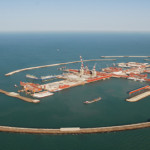
Production at the site is years behind schedule.
Partners in the NCOC are KazMunaiGaz, Italy’s Eni, France’s Total, the Anglo-Dutch company Royal Dutch Shell, the U.S. company ExxonMobil, and Japan’s Inpex.
Kazakhstan recently used its preemptive right to purchase a 8.45 percent share from ConocoPhillips and reports indicate Kazakh authorities will sell that stake to the China National Petroleum Corporation.
Turkmenistan – China, new gas agreements.
10 Sep 2013 The Chinese and Turkmen presidents announced the completion of the first phase of the Galkynysh gas field, which will supply gas to China.
China National Petroleum Corporation also signed a new contract to import gas from Galkynysh” the world’s second-largest gas field” a deal experts said will ensure China’s growing natural gas supply and help Turkmenistan secure a stable buyer.
President Xi Jinping and his Turkmen counterpart Gurbanguly Berdymukhamedov attended the ceremony marking the start of operation of three processing plants at Galkynysh in South Turkmenistan.
Insiders told China Daily that each plant has an annual output of 10 billion cubic meters of gas.
A plant jointly developed by China National Petroleum Corporation will send its products entirely to China, and some gas from the other two plants is also likely to be sent to China.
Turkmenistan is China’s largest supplier of natural gas, and China is the largest overseas market for Turkmenistan’s natural gas.
Xi and Berdymukhamedov said that the annual transport of 65 billion cubic meters of natural gas from Turkmenistan to China by 2016 will be ensured through the world’s longest natural gas pipeline.
In 2009, the two nations put into operation a pipeline of more than 8,000 km to bring vital energy supplies through China’s western region.
China imports about 40 billion cubic meters a year from Turkmenistan.
According to insiders, most of the newly added 25 billion cubic meters will be from Galkynysh.
China National Petroleum Corporation, the country’s largest energy producer, announced that it had signed an agreement with Turkmenistan to import 25 billion cubic meters of natural gas annually.
“By Sept 3, the total quantity of China’s natural gas import contracts were about 119.6 billion cubic meters (excluding the new contract of 25 billion cubic meters with Turkmenistan), which means that there is still a big shortage for China’s natural gas imports,” said Wang Ruiqi, a senior analyst with ICIS Energy.
She said the new contract with Turkmenistan will ensure China’s natural gas supply.
Turkmenistan holds the world’s fourth-largest natural gas reserves and possesses vast reserves of oil. It is estimated that 400 million people in China benefit from natural gas from Turkmenistan.
Full Article From China Daily Sept. 5th, 2013.
G20 Leaders’ Summit. The programme.
5 Sep 2013On September 5-6, 2013 the G20 Leaders’ Summit will be held in St.Petersburg. The Summit, which is the culmination of the Russian Presidency year, will mark the 5th anniversary of the G20 at the Leaders’ level. 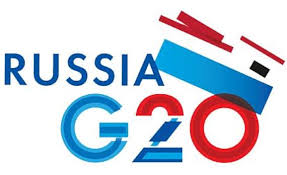
The key objective of the G20 at this moment, given the continuing instability at the financial markets, unemployment remaining high and persistent global imbalances, is fostering strong, sustainable and balanced growth. To get closer to attaining this goal, Russia has set forth a number of tasks for the G20 to stimulate economic growth and job creation, primarily through encouraging long-term investment, ensuring trust and transparency at the markets and enhancing effective regulation.
Leaders’ attention at their forthcoming meeting will be mainly focused on the issues of ensuring economic growth and financial stability, quality job creation and tackling unemployment, searching for the new sources of growth and investment financing, as well as strengthening multilateral trade and international development assistance.
The G20 Leaders will also take into account the recommendations elaborated by the Business 20, Civil 20, Labour 20, Think 20 and Youth 20 throughout the year of the Russian presidency. In addition, Leaders will meet with representatives of the business community and labour unions on the sidelines of the Summit.
The 2-day-long G20 Leaders’ Summit will result in the adoption of the G20 Leaders Joint Statement that will reflect the G20’s intentions and concrete mechanisms for further work on stimulating strong, sustainable and balanced growth.
Priorities of Russia’s G20 presidency in 2013
The core objective of the Russian Presidency is to concentrate the efforts of G20 – forum of the world’s largest economies – on developing a set of measures aimed at boosting sustainable, inclusive and balanced growth and jobs creation around the world.
Addressing major challenges to global economy is a traditional focus of the G20 agenda. Russia will ensure continuity of the dialogue on all its items and attach extra impetus to the G20 discussion, facilitating further implementation of the G20 commitments and building on the achieved results.
Russia believes that discussion on all the interconnected issues of the G20 agenda is organized around three overarching priorities, aimed at starting the new cycle of economic growth:
– Growth through quality jobs and investment;
– Growth through trust and transparency;
– Growth through effective regulation.
These 3 priorities of the Russian Presidency will serve as a lens through which we propose to consider and discuss the G20 agenda in 2013, comprised of the 8 areas:
1) Framework for strong, sustainable and balanced growth;
2) Jobs and employment;
3) International financial architecture reform;
4) Strengthening financial regulation;
5) Energy sustainability;
6) Development for all;
7) Enhancing multilateral trade;
8) Fighting corruption.
The event is organized with support of Italian embassy in Kiev. Event’s official partners of are UniCredit Bank (General partner), Ferrero, Salini, Ukrainian international airlines, Iveco. Informational support – Presscom. 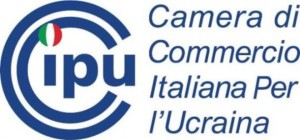
Schedule:
11-00 Exhibition of Italian masterpieces. The exhibition will be inaugurated by His Excellency Ambassador of Italian Republic to Ukraine Mr. Fabrizio Romano, and President of Italian commercial chamber in Ukraine Mr. Maurizio Carnevale. The entrance is free.
12:00 Presentation of Vittorio Varro’s art-zone. A group of students of Italian art-schools under supervision of Mr. Vittorio Varro will present 4 masterpieces within 2 days. The profit obtained from sale of these art products, will be used for charity purposes. The entrance is free.
14:00 Taste seminars. Italian producers of high quality products will present Italian wine industry to Ukrainian consumers. Pasta, Prosciutto, Ham, bread, confectionary, Parmesan, etc. and exclusive BEER will be available. Try Italian cuisine yourself! Pre-registration is required.
15:00 Made In Italy. Presentation of Italian commerce chamber’s projects in Ukraine, which are intended to promote Italian products and services in the field of tourism, food service, agriculture. Pre-registration is required.
11:00 Italian automobile-design review. (June 2, Kreshiatik str., start from Bessarabian square). Bikes and cars of famous Italian producers (Ferrari, Maserati, Lamborghini, and Ducati), will drive through the main street of Kiev. The Iveco super-truck, designed in a huge stage, will close the review and host the Italian music performance. The entrance is free.
Poland does not expect the EU Council to lift this year the Excessive Deficit Procedure, an EU mechanism for enforcing fiscal rules. The country missed its public-deficit target for 2012 according to the recently released data from the Central Statistical Office (GUS). 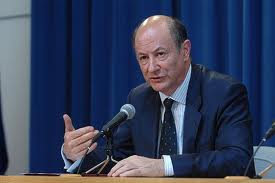
Warsaw has been subject to scrutiny from Brussels since 2009 for running public deficits above the EU’s limit of 3% of gross domestic product. Despite initial plans to shrink the gap to 2.97%, the 2012 deficit ended up at 3.9% of GDP, GUS said.
“The Polish government believes it will reduce its general government deficit to 3.5% of GDP in 2013, thus paving the way to lifting excessive deficit procedure in 2014 versus previously expected 2013”, Polish Finance Minister Jacek Rostowski said at a news conference.
Of the EU’s 27 members, 20 are currently under an Excessive Deficit Procedure for missing deficit targets.
Poland is the only European Union country to have avoided a recession since the Lehman Brothers’ collapse in 2008, but its expansion decelerated to 1.9% last year from 4.5% in 2011, according to recent data.
With the prolonged troubles of the eurozone undercutting the country’s export industries, rising unemployment, and pressure on private consumption and investment, the finance ministry cut its growth forecast for 2013 to 1.5%
Cipro, un bel grattacapo per la Russia.
24 Mar 2013 I russi sono letteralmente furibondi: non sono stati consultati dagli europei, quando Bruxelles ha proposto a Nicosia il prelievo forzoso dai conti correnti bancari.
Eppure Mosca credeva di essersi guadagnata la fiducia internazionale, avendo già prestato a Cipro nel 2011 ben 2,5 miliardi di dollari, mentre i “partner” continentali continuavano ad osservare la situazione creatasi sull’isola del Mediterraneo senza alzare un dito. 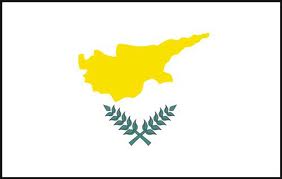
La delusione è tanto più grande, poiché tutti i meccanismi di consultazione con l’Ue si sono dimostrati inadeguati. Il gruppo di Paesi, che continua a vedere nell’ex superpotenza comunista un pericolo, ha imposto la scelta del prelievo forzoso proprio per colpire Mosca.
In queste convulse ore le cifre sono state confermate anche dalla Banca centrale di Cipro: su 68 miliardi nei forzieri, una trentina appartengono a russi. Il che potrebbe significare una perdita spaventosa. Il buco da coprire in fretta a Nicosia si aggira sui 5,8.
Persino società, controllate dallo Stato federale, hanno i conti bloccati sull’isola mediterranea, ha ammesso il premier Dmitrij Medvedev, che ha ipotizzato la creazione in qualche regione periferica dell’immenso gigante slavo di speciali aree off-shore.
“Molliamogli Kaliningrad-Koenigsberg (con la Prussia orientale) e prendiamoci Cipro”, scriveva ironicamente in un editoriale il popolare Moskovskij Komsomolets.
Non c’è magnate famoso o compagnia importante che non abbia una sede in quella che un tempo veniva considerata l’isola del tesoro, dove i soldi venivano messi al sicuro lontani dalle grinfie di burocrati corrotti. Adesso toccherà trovare ospitalità da qualche altra parte. La favola è finita!
Cipro è da anni ai primi posti tra i Paesi investitori diretti in Russia. In realtà, questi sono capitali di ritorno che, in pratica, godono nella Patria ritrovata di una giurisdizione diversa da quella nazionale. Ecco un’altra ragione della creazione di una piazza finanziaria del genere.
Gli europei hanno sfruttato l’occasione per rimettere ordine nello spazio dell’euro. Si sono levati un bel sasso dalle scarpe, considerando alcune chiacchierate operazioni messe a segno nell’ultimo decennio dagli spericolati oligarchi moscoviti.
Il rischio è, però, che questa operazione sia un boomerang. All’apertura delle banche cipriote i soldi dei russi (quelli non tassati) prenderanno certamente il volo. Il buco cipriota potrebbe allora trasformarsi in una voragine quattro volte maggiore. Il governo federale ha minacciato anche di cambiare la composizione delle proprie riserve valutarie, riducendo le quote dell’euro. Il che significherebbe giorni difficili per la moneta unica.
Dal 26 marzo a Durban è previsto il summit annuale dei Paesi emergenti del Brics (Brasile, Russia, India, Cina e Sud Africa). I russi, che hanno il loro tallone d’Achille dalla dipendenza eccessiva dal prezzo del petrolio, probabilmente prepareranno qualche sorpresa. Allontanarsi in un sol colpo da euro e dollaro? Difficile. Spingeranno intanto per il rafforzamento del cinese yuan, come valuta di riferimento. Il summit al Cremlino con la nuova dirigenza di Pechino è giunto proprio a puntino.
By 2017 Northern America will achieve the energy independence and will start to export oil and gas abroad. New competitors to Russia are emerging everywhere in the world.
* * *
“In a reported world first, Japan extracted natural gas from methane hydrate, considered a next-generation energy source, in the Pacific seabed off Aichi Prefecture, the Ministry of Economy, Trade and Industry said.
“We started production of a certain amount of methane gas from around 9:30 a.m.,” a ministry official said, noting that if the gas can be extracted without any problems for about two weeks in the ongoing trial, it will be a “major step” toward future commercial development of the resource.
Large concentrations of methane hydrate are believed to exist under the seabed around Japan. Last October, a research team from Meiji University discovered the substance under the seabed in the Sea of Okhotsk and in the Sea of Japan off Akita, Yamagata and Niigata prefectures. There is also a high possibility that it also exists under the seabed off Shimane Prefecture.
Total deposits of methane hydrate around Japan are estimated to be sufficient to cover domestic consumption of natural gas for about 100 years… ”
Full Article – Kyodo – Japan Times
Welcome
We are a group of long experienced European journalists and intellectuals interested in international politics and culture. We would like to exchange our opinion on new Europe and Russia.
Categories
- Breaking News (11)
- CIS (129)
- Climate (2)
- Energy&Economy (115)
- EU Eastern Dimension (85)
- Euro 2012 – Sochi 2014 – World Cup 2018, Sport (43)
- Euro-Integration (135)
- History Culture (198)
- International Policy (261)
- Military (74)
- Interviews (18)
- Italy – Italia – Suisse (47)
- Odd Enough (10)
- Poland and Baltic States (126)
- Religion (31)
- Russia (421)
- Survey (4)
- Turning points (4)
- Ukraine (176)
- Российские страницы (113)
Archives
- November 2020
- October 2020
- September 2020
- August 2020
- July 2020
- May 2020
- April 2020
- March 2020
- January 2020
- December 2019
- November 2019
- October 2019
- September 2019
- August 2019
- July 2019
- June 2019
- May 2019
- April 2019
- March 2019
- February 2019
- December 2018
- November 2018
- October 2018
- September 2018
- August 2018
- July 2018
- June 2018
- May 2018
- April 2018
- March 2018
- February 2018
- January 2018
- December 2017
- November 2017
- October 2017
- September 2017
- August 2017
- July 2017
- May 2017
- March 2017
- January 2017
- December 2016
- November 2016
- October 2016
- September 2016
- July 2016
- June 2016
- May 2016
- April 2016
- February 2016
- January 2016
- November 2015
- October 2015
- September 2015
- June 2015
- April 2015
- March 2015
- February 2015
- January 2015
- December 2014
- November 2014
- October 2014
- September 2014
- August 2014
- July 2014
- June 2014
- May 2014
- April 2014
- March 2014
- February 2014
- January 2014
- December 2013
- November 2013
- October 2013
- September 2013
- August 2013
- July 2013
- June 2013
- May 2013
- April 2013
- March 2013
- February 2013
- January 2013
- December 2012
- November 2012
- October 2012
- September 2012
- August 2012
- July 2012
- June 2012
- May 2012
- April 2012
- March 2012
- February 2012
- January 2012
- December 2011
- November 2011
- October 2011
- September 2011
- August 2011
- July 2011
- June 2011
- May 2011
- April 2011
- March 2011
- February 2011
- January 2011
- December 2010
- November 2010
- October 2010
- September 2010
- August 2010
- July 2010
- June 2010
- May 2010
- April 2010
- March 2010
- February 2010
- January 2010
- December 2009
- November 2009
- October 2009
- September 2009
- August 2009
Our books




